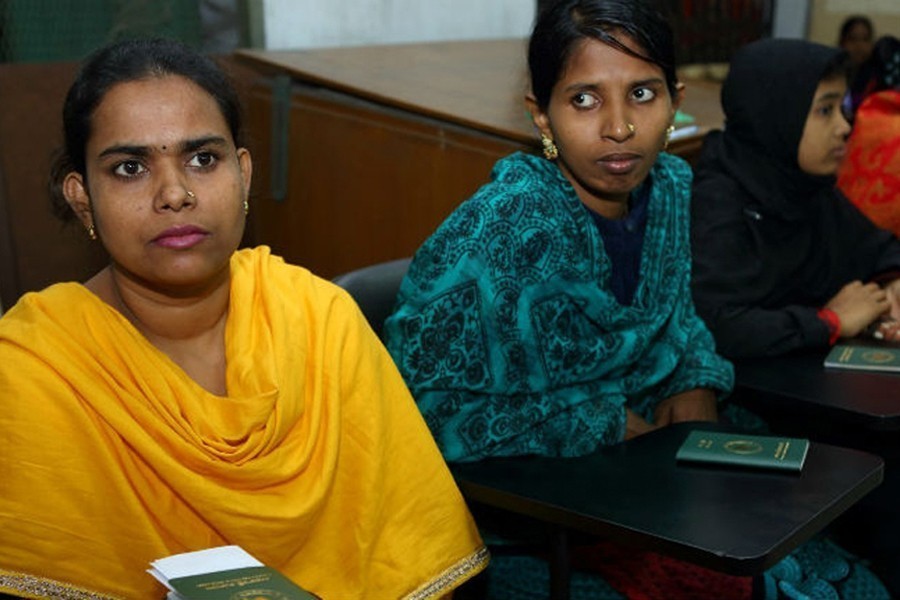The prolonged coronavirus pandemic has made the migrant workers' families in the country helpless, as many of them did not receive any remittance in the last three-four months.
Such families are taking financial assistances from their relatives. Many of them are even borrowing money to meet their emergency needs.
Ovibashi Karmi Unnayan Program (OKUP) made an analysis on a database of 3,000 phone calls from migrant workers and their families back home during the pandemic period.
It showed around 40 per cent of Bangladeshi migrant workers in the destination countries did not get their salaries, and were worried of losing jobs.
Around 25 per cent of workers' families here were facing dire economic crisis, as the migrants were not able to send home any remittance.
Hasina Akter, wife of a migrant worker, said her husband, Sheikh Zahid, has been out of work and not sending any money for the last three months.
Her husband went to Iraq with a cleaning job at a school six years back. Before the coronavirus outbreak, he sent money here regularly.
But currently schools there have been closed because of the pandemic. So, he has no work at this moment, said Hasina, who hails from Charvodrashon upazila under Faridpur.
Her husband has been facing severe crisis of money in Iraq. For this reason, he cannot even communicate with his family in Bangladesh regularly.
"I have borrowed money to maintain my family expenses. Sometimes my father also gives me money. But it is not enough to meet our daily necessities."
When asked, Hasina Akter said she went for procuring relief twice, but was refused as a migrant's wife. Distributors said relief is only for vulnerable group of people.
"Now, I am living in an uncertain situation," she added.
Shefali Akter's husband, Giusuddin (55), has been staying in the United Arab Emirates (UAE). He has not been able to send money for the last four months.
She did not face trouble in first two months for having some deposits. But she has been almost empty-handed for the last two months.
"My son is also a migrant worker, who is staying in Malaysia. But he has become undocumented because of middlemen's fraudulent practices. So, he has no job at this moment."
If the government gives financial assistance, considering their vulnerabilities, they can overcome the present difficult situation, she noted.
Meanwhile, the government has taken a move to ensure providing humanitarian aid to migrant workers and their families, impacted by the Covid-19 pandemic.
To this effect, Ministry of Disaster Management and Relief (MoDMR) has issued letters to deputy commissioners (DCs) and upazila nirbahi officers (UNOs) on July 1.
Interested workers and family members have been suggested to communicate with respective District Employment and Manpower Offices (DEMOs) and Technical Training Centres (TTCs).
OKUP chairman Shakirul Islam said it is a good decision to extend humanitarian aid to the migrant families. But the initiative should be implemented properly.
He also called for brining the migrant families under the government's social safety net programmes to ensure their due protection and support.
Mr Islam said they are receiving phone calls regularly from migrant workers and their families, who are informing them about their food and other crisis.
Many of them have extremely limited or no access to food, which has placed them on the brink of starvation.
Existing health risks of the migrants and their families are also worsening due to their inability to purchase essential medicines and protective equipment, he added.
About 12 million Bangladeshis have gone abroad with jobs since 1976. Bangladesh Bank (BB) statistics shows that the expatriate Bangladeshis sent home US$ 18.20 billion remittance in last fiscal year (FY), 2019-20, which was $16.42 billion in FY 2018-19.


